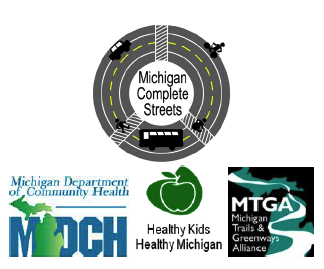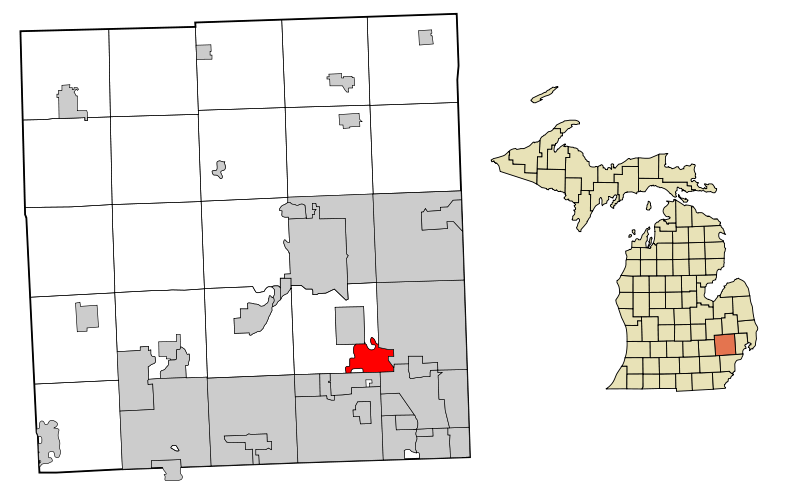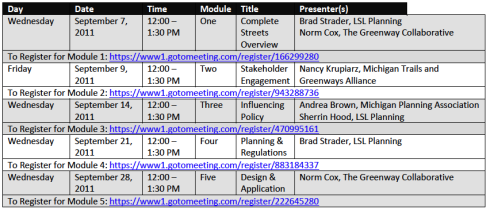You are currently browsing the monthly archive for August 2011.
Reposted from LMB.org
FederalFederal Transit Administration (FTA) has issued a policy statement in today’s Federal Register establishing that pedestrian improvements within a half mile radius of a transit facility and bicycle improvements within a 3-mile radius of the transit facility are considered to have a de facto relationship to the transit facility. This is great news as it simplifies the eligibility determinations for use of transit funds for bicycle and pedestrian improvements.
The majority of FTA’s grant programs allow money to be spent on the design, construction, and maintenance of walking and biking projects that “enhance or are related to public transportation facilities.” But how do they determine if such a relationship exists? Until today’s announcement, the FTA had used 1,500 feet from the transit stop or station as the rule of thumb.
Additionally, in response to public comments, the FTA also included a stipulation that allows projects located beyond these distances to be eligible if walkers and cyclists could reasonable be expected to make longer trips.
LMB is extremely pleased that this new policy recognizes that successful transit depends on safe and convenient access to transit stops, especially within nearby walk and bike catch basins. Making bicycling and walking safe and attractive makes transit more accessible, practical and appealing. In addition, providing secure bike parking is far cheaper than building surface or structure automobile parking.
You can read the entire policy statement here and read more on the history of this significant policy change on the League of American Bicyclists’ blog. Below are a few excerpts specifically related to bicycling and complete streets.
“Distances beyond the ‘‘walkshed” of public transportation stops and stations may, in fact, be within the range of a short bicycle trip. Indeed, as one author stated, ‘‘[bicycles] are the perfect transportation choice for a short one- to three-mile trip to and from a transit station.” Providing secure parking and other amenities for bicycles and cyclists at public transportation stops or stations can be less expensive than providing parking for automobiles. Access to public transportation allows bicyclists the opportunity to make longer trips. Further, where physical conditions prevent a continuous bicycle trip, public transportation can provide a link to previously inaccessible destinations.”
“In addition, investing in a ‘complete street’ concept stimulates private-sector economic activity by increasing the viability of street-level retail small businesses and professional services, creating housing opportunities and extending the usefulness of school and transit facilities.” As one leading scholar noted, ‘‘Pedestrian and bicycle traffic use fewer resources and affect the environment less than any other form of transport.” If we are to create livable communities, ‘‘the range of transportation choices available to all Americans-including transit, walking, bicycling, and improved connectivity for various modes-must be expanded.”
CONTACT: Jeff Cranson, MDOT Director of Communications, 517-335-3084
MDOT promotes on-road bicycling facilities
August 19, 2011 — The Michigan Department of Transportation (MDOT) is sponsoring “Training Wheels” courses around the state designed to educate communities interested in providing on-road bicycle facilities for their residents and visitors. The five-hour course includes both classroom and outdoor instruction.
The courses will be offered in the following areas:
- Sept. 12 in Three Rivers ([email protected])
- Sept. 13 in Dewitt Township ([email protected])
- Sept. 14 in Big Rapids ([email protected])
- Sept. 15 in Park Township/Holland ([email protected])
- Sept. 26 in Dearborn ([email protected])
- Sept. 27 in Berkley ([email protected])
- Sept. 28 in Rochester ([email protected])
- Sept. 29 in Lapeer ([email protected])
“Training Wheels” is designed to show communities how to integrate bike facilities into existing infrastructure to make bicycling safe and convenient, providing alternate transportation that make roads more complete for everyone. Classroom instruction using a guide produced by the American Association for State Highway Officials (AASHTO) is followed by an on-road, on-bike portion. The outdoor segment provides participants a firsthand look at the benefits of providing an alternative mode of travel that does not require expensive facilities for communities to build or maintain.
The “Training Wheels” courses are intended for city, township and county managers; council members; engineers; and related design and planning staff. Registration is required. A bicycle and helmet also are required and may be rented; bicycles and helmets must be ordered in advance. Registration deadlines vary with locations. For details, contact Cynthia Krupp at 517-335-2923, or by e-mail at [email protected].
 Complete Streets Institute (CSI): A Need for Information
Complete Streets Institute (CSI): A Need for Information
In response to the successful passage of the Complete Streets legislation, and increasing demand from interested communities and organizations, the Healthy Kids, Healthy Michigan (HKHM) Coalition, Michigan Department of Community Health (MDCH), and Michigan Trails and Greenways Alliance (MTGA) partnered to develop the Complete Streets Institute. The Complete Streets Institute is a comprehensive and standardized 5-module training program designed to increase awareness of complete streets principles, support local advocacy efforts, and provide practical, realistic instructions and techniques to help communities create, adopt, and implement Complete Streets policies and projects.
The 5-module Complete Streets Institute training curriculum was designed to cover all aspects of Complete Streets, from introduction of the concept (Module 1) to design applications in your community (Module 5). You pick the modules YOUR community needs to move ahead with success.
Lunchtime Webinar Series
Register for Module 1 (September 7)
Register for Module 2 (September 9)
Register for Module 3 (September 14)
Register for Module 4 (September 21)
Register for Module 5 (September 28)
Webinar System Requirements:
PC-based attendees Required: Windows® 7, Vista, XP or 2003 Server
Macintosh®-based attendees Required: Mac OS® X 10.5 or newer
Who Should Attend
Community health professionals, bike and trail advocates, disability rights advocates, professional community planners, engineers and designers, local government staff and officials, state agency professionals (MDOT, MDCH, MSHDA, others), school leaders, non-profits, and anyone with an interest in advancing Complete Streets in Michigan.
 After being featured on Streetsblog DC last week, we are pleased to inform our readers of an upcoming Training Wheels: On-Road Bicycle Facility Design Training, that will take place in Rochester, MI September 28, 2011.
After being featured on Streetsblog DC last week, we are pleased to inform our readers of an upcoming Training Wheels: On-Road Bicycle Facility Design Training, that will take place in Rochester, MI September 28, 2011.
WHAT:
Training Wheels is an educational course on the planning and design of on-road bicycle facilities sponsored by the Michigan Department of Transportation (MDOT). It will consist of two hours of classroom instruction on the AASHTO Guide for the Development of Bicycle Facilities, followed by an on-road, on bike portion. During this portion we will casually ride through the community, analyzing types of on-road facilities available. There will be many stops to point out potential facility types, followed by a group exercise and discussion, questions from participants and a brief wrap-up.
WHO: This course is for City, County, Township, Village and MDOT managers, engineers, planners, City Councils, DDA staff, Chamber of Commerce and other stakeholders that can help communities educate others and adopt on-road bicycle facilities.
WHERE:
Stoney Creek Schoolhouse
1051 Washington Road
Rochester, Michigan 48306
WHEN:
September 28, 2011
9:00 a.m. – 2:30 p.m.
TO REGISTER: Email Nina Misuraca Ignaczak at [email protected]
MORE INFO:
 FOR IMMEDIATE RELEASE via
FOR IMMEDIATE RELEASE via
Disability Network/Lakeshore
The City of Otsego continued their vision of designing a healthy and accessible community at their regular scheduled City Council meeting Monday night.
Otsego City Council members unanimously approved a Complete Streets Resolution to include Complete Streets design considerations and practices as a routine part of infrastructure planning and implementation. The resolution comes after a presentation was made by Kathryn Gray, Public Policy Specialist for Disability Network/Lakeshore, to the Otsego Planning Commission at their June 27th meeting indicating the benefits of such a resolution.
Complete Streets are achieved when local organizations and agencies routinely plan, design, construct, re-construct, operate, and maintain the transportation network to improve travel conditions for bicyclists, pedestrians, and people with disabilities in a manner consistent with, and supportive of, the surrounding community.
City Manager of Otsego, Thad Beard, drafted a resolution of support for the council to vote on Monday night. Beard supported the resolution stating, “Complete Streets are for all modes of transportation, including all ages and abilities, and offers the potential for greater quality of life for our residents. Our City recognizes the importance of street infrastructure enabling safe, convenient, and comfortable travel for all users.”
Mayor Gilmer noted that passing this resolution, “will be great for our community!” Many benefits come from implementing Complete Streets including economic growth and community stability in providing accessible and efficient connections between home, work, school, recreation, and retails destinations.
Gray indicated that one of the many benefits of passing a resolution “is the potential for priority when applying for transportation enhancement grants through the Michigan Department of Transportation (MDOT).” Gray is a certified trainer of Complete Streets from the Michigan Department of Community Health’s Complete Streets Institute. “Both the Otsego Planning Commission and City Council had no objections to such a resolution and were eager to begin thinking about incorporation of Complete Streets in their planning processes.”
Over 45 Michigan communities have adopted a Complete Street ordinance or resolution. The City of Otsego joins the Cities of Holland and Allegan in Allegan County in passing such resolutions.
For more information:
Kathryn Gray, Public Policy Specialist
Disability Network/Lakeshore
(616) 396-5326
[email protected]
 On July 11, 2011, Birmingham’s City Commission passed a Complete Streets resolution in support of multi-modal transportation planning to improve travel choices in the city. The resolution directs city staff to develop a set of proposed policies and procedures to implement Complete Streets practices. The City Commission voted unanimously to support the resolution and recognizes that while the city has long prioritized walkability, additional work remains to serve all user groups. This resolution comes after several discussions at the Planning Board about the benefits of Complete Streets and approaches to implementation. The city will move forward with identifying the most effective way to implement Complete Streets practices in its road planning process and hopes to work with other communities throughout Michigan to ensure that the city is employing best practices. By passing the Complete Streets resolution, Birmingham renews its commitment to promoting safe and convenient mobility options and improving the quality of life for all its residents.
On July 11, 2011, Birmingham’s City Commission passed a Complete Streets resolution in support of multi-modal transportation planning to improve travel choices in the city. The resolution directs city staff to develop a set of proposed policies and procedures to implement Complete Streets practices. The City Commission voted unanimously to support the resolution and recognizes that while the city has long prioritized walkability, additional work remains to serve all user groups. This resolution comes after several discussions at the Planning Board about the benefits of Complete Streets and approaches to implementation. The city will move forward with identifying the most effective way to implement Complete Streets practices in its road planning process and hopes to work with other communities throughout Michigan to ensure that the city is employing best practices. By passing the Complete Streets resolution, Birmingham renews its commitment to promoting safe and convenient mobility options and improving the quality of life for all its residents.
Download Birmingham’s Complete Streets resolution
Birmingham Patch coverage
Bikes Belong, a national organization sponsored by the U.S. bicycle industry with the goal of putting more people on bicycles more often, is accepting applications for Community Partnership Grants. The grants are designed to foster and support partnerships between local governments, nonprofit organizations, and local businesses working to improve the environment for bicycling.
Grants of up to $10,000 will be largely will be awarded to fund the construction or expansion of bicycle facilities such as bike lanes, trails, and paths. The grants committee also will consider advocacy projects that promote bicycling as a safe and accessible mode of transportation.
To be eligible for a grant, a partnership must include collaboration between at least one city/county government office or department; one nonprofit organization with a mission specific to bicycling, trails, or recreation; and one local business.
















